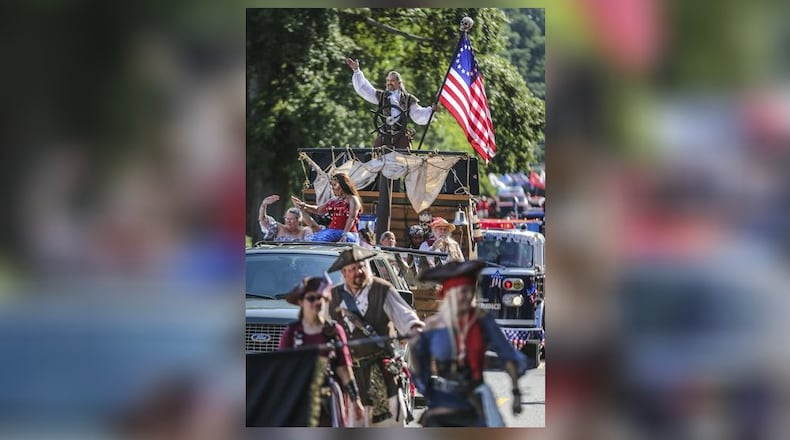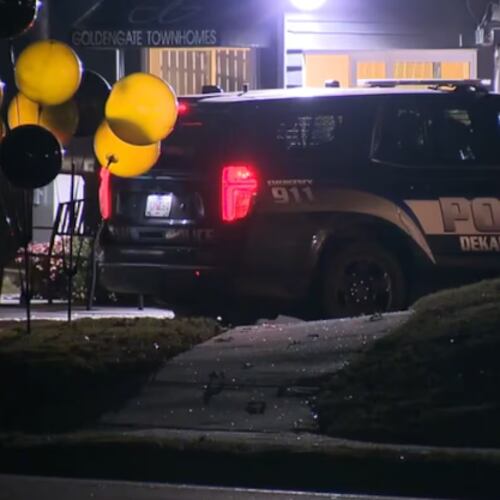Through the years, one thing was a given: Dunwoody was Republican — whether it be the current city version or back when it was just a state of mind.
Dunwoody was the Republican refuge in Democratic DeKalb County, a conservative (with a small “c”) land of tennis and golf and spacious single-family homes with manicured lawns. All represented by politicians with R’s after their names.
But the past few years have been tough on Dunwoody’s R pols. Just ask longtime legislator Fran Millar.
Two years ago, the area had U.S. Rep. Karen Handel, state Rep. Tom Taylor, and Millar, a state senator. All from the GOP.
Gone, gone, gone.
Now, as a result of last week's voting, there's another signpost along the way — Lynn Deutsch, a public supporter of Democratic-darling John Ossoff, is the mayor-elect.
And Joe Seconder, who founded the Perimeter Progressives in reaction to Donald’s Trump’s election and is often seen around town in biking Spandex, has won a City Council seat by beating a candidate who had the support of the current mayor and council.
"We're a metro area turning Democratic more rapidly than anyone thought," said Millar, who lost decidedly to Democrat Sally Harrell in 2018. It was part of a wave that knocked off several north metro Republicans.
Millar estimates that in 2008, when Dunwoody voted overwhelmingly to become a city, the party split there was 60-40, with the R’s owning the larger chunk. Now, he says, “It’s safe to say that a majority of the council is Democratic.”
That last comment is disputed by several people, who note that council members are nonpartisan and almost all will claim to be independents, so truth serum is needed to see what really beats in their political hearts.
Deutsch is a two-term Dunwoody councilwoman who trounced fellow councilman Terry Nall, a man who backed Karen Handel, the defeater of Ossoff in the frenetic special election in 2017. Handel warmed the seat until political newcomer Lucy McBath, a Democrat, ran her off last year.
Both Deutsch and Seconder are quick to note that the Dunwoody municipal election is nonpartisan. They say they won because they had ideas that voters preferred, and they outworked their opponents.
“It was very rare for anyone to ask me my party,” said Deutsch. “When we said (the election) was nonpartisan, very rarely did anyone challenge me.”
Seconder said national partisan politics were not often mentioned when he knocked on doors. But one resident who initially supported him later called to tell the candidate to yank his sign from his yard — the resident had Googled Seconder’s name and found that he had no use for Trump.
Longtime Councilman John Heneghan said Dunwoody’s municipal races have never been partisan. “If you wear your politics on your sleeve it turns people off. Delivering services has nothing to do with Democrat or Republican.”
Still, the three former mayors have either been Republican or certainly leaned that way.
Said Deutsch, “The key thing about Dunwoody is we’re getting a little younger; those residents want the city to take on a role we haven’t before.” She was referring to things like making life “more walkable” or giving Dunwoody a sense of place with more parks and nightlife.
These are things other 'burbs are doing, while Dunwoody, despite the growth near I-285, has leaned to the 1970s' suburban model of single-family homes. (The average residence is worth $400,000, according to the census.)
Seconder said the biggest change is that original Dunwoody residents have aged and moved on, with young families moving in.
He said they want amenities.
Brookhaven, the new city to the south of Dunwoody, will spend millions to get parks and trails. Sandy Springs, the neighbor to the west, is building a city center. The new residents want that, Deutsch and Seconder say. It isn’t a D or R thing, they say, it’s a new-resident thing.
Millar has said that the influx of apartments on the southern parts of Dunwoody is changing the city's voting patterns. The city of 50,000 residents is about 50-50 when it comes to single-family homes and multifamily units.
Bob Dallas, a Dunwoody resident who once headed DeKalb’s GOP, said the percentage of apartments has not changed greatly. He thinks national political trends are at play in Dunwoody.
Heneghan, the councilman, runs a blog that sometimes crunches numbers. He wrote that last year's general election was historic for Dunwoody because "it identified a change of the electorate" inside the city's boundaries "whereby those who voted Democratic outnumbered those who voted Republican in most races."
Democratic gubernatorial candidate Stacey Abrams got 54% in Dunwoody to Brian Kemp’s 46%.
Dunwoody’s south precincts, the ones with more apartments and condos, went about 70% Democratic last year, according to Heneghan’s analysis. The northern precincts went about 57% GOP.
Last year was such a bad year for Republicans that Ken Wright, one of the founders of Dunwoody and its first mayor, was defeated by political newcomer Mike Wilensky.
“After Trump was elected there was amazing energy in this area for Democrats — also for moderates and Libertarians,” said Wilensky. “They want rational common-sense leadership.”
He believes some of that may have trickled down to the nonpartisan municipal races.
Deutsch benefited from some of that last week. Some of her volunteers worked for Democratic candidates last year. But, she said, it was mostly local friends and neighbors who helped her contact 7,000 households to get out the vote.
This year’s municipal elections produced a turnout from the single-family precincts in the high 30% range, twice that of the precincts with more multifamily dwellings.
Next year, in the general election, voters will emerge from across the city in droves, meaning local Republicans should be nervous.
About the Author
The Latest
Featured








